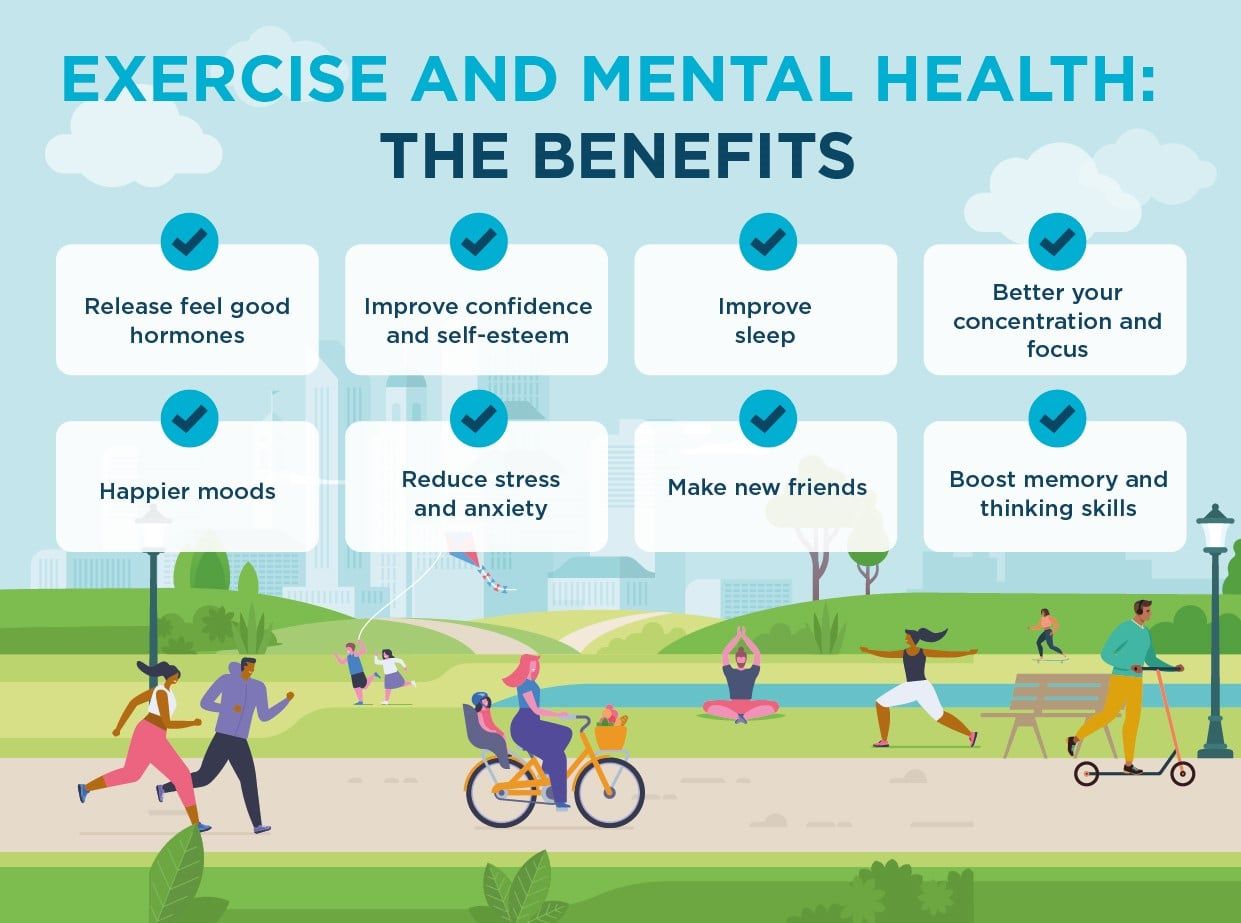
Exercise is not only beneficial for physical health but also plays a significant role in improving mental well-being and reducing stress. Engaging in regular physical activity has been scientifically proven to release endorphins and contribute to positive mental health. In this article, we will explore ten ways in which exercise can have a positive impact on mental health.
1. Releases Endorphins
When you exercise, your brain releases endorphins, often referred to as “feel-good” hormones. These endorphins interact with receptors in your brain, triggering a positive feeling in your body. This rush of endorphins helps reduce feelings of sadness or anxiety, promoting a happier state of mind.
2. Reduces Symptoms of Depression
Regular exercise has shown considerable benefits in reducing symptoms of depression. It can help alleviate feelings of sadness, hopelessness, and fatigue associated with depression. Exercise increases the production of brain-derived neurotrophic factor (BDNF), which aids in the growth of new neurons and acts as a natural antidepressant.
3. Boosts Self-confidence
Regular physical activity can significantly improve self-confidence and self-esteem. As you achieve your fitness goals, you will experience a sense of accomplishment and pride, leading to increased confidence in all areas of your life. Furthermore, exercise can improve body image, making you feel more comfortable and confident in your own skin.
4. Enhances Cognitive Function
Exercise has a positive impact on cognitive function and memory. Physical activity increases blood flow to the brain, promoting the growth of new blood vessels and enhancing overall brain function. Regular exercise has been linked to improved focus, attention span, and cognitive flexibility.
5. Stress Relief
One of the most well-known benefits of exercise is its ability to reduce stress levels. Physical activity stimulates the production of endorphins, which act as natural stress fighters. Exercise also helps clear your mind, distracts you from daily worries, and provides a healthy outlet for built-up tension, leading to reduced stress and improved mental well-being.
6. Better Sleep Quality
Regular exercise promotes better sleep quality, which is crucial for mental health. Engaging in physical activity can help regulate your sleep patterns and improve sleep duration. A good night’s sleep allows your brain to recharge and rejuvenate, leaving you feeling refreshed and better equipped to handle daily stressors.
7. Social Interaction
Many forms of exercise offer the opportunity for social interaction, whether it’s joining a sports team, participating in group classes, or exercising with friends. Social interaction is vital for mental health as it can help combat feelings of loneliness and isolation. Connecting with others who share similar interests and goals can provide a support network and foster a sense of belonging.
8. Increased Brain Plasticity
Physical activity promotes brain plasticity, the brain’s ability to change and adapt over time. Regular exercise stimulates the production of certain proteins that trigger the growth of new neurons and connections between existing ones. This increased brain plasticity enhances learning, memory, and overall cognitive abilities.
9. Improved Mood Regulation
Exercise plays a significant role in regulating moods and emotions. It can reduce feelings of irritability, anger, and anxiety while promoting a more positive and stable mood. The endorphins released during exercise help regulate neurotransmitters in the brain, leading to improved mood regulation and emotional well-being.
10. Increased Mindfulness
While performing physical activities, you can practice mindfulness and be present in the moment. Whether you are running, practicing yoga, or engaging in any other form of exercise, focusing on your body’s movements and sensations helps quiet the mind and reduce stress. This mindfulness practice during exercise can have long-lasting benefits for your mental health.
Exercise is a powerful tool for improving mental health and reducing stress. The benefits go beyond physical fitness by boosting mood, enhancing cognitive functions, and promoting a positive self-image. By incorporating regular exercise into your routine, you can experience the numerous advantages it offers for both your body and mind.

